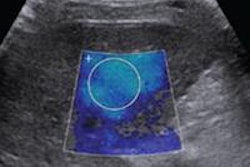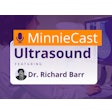Dear AuntMinnie Member,
A new study from South Korea indicates that shear-wave elastography could be a good tool for predicting which asymptomatic patients with liver cirrhosis have esophageal varices, or abnormally enlarged veins in the esophagus.
Researchers used shear-wave elastography to examine 100 patients with compensated liver cirrhosis, a type of cirrhosis in which no symptoms are present. The presence of esophageal varices in patients with cirrhosis is a good predictor of mortality, and endoscopy is currently used to screen patients.
But the researchers found that shear-wave elastography could be a better tool, showing better results than other metrics such as platelet count and spleen diameter. Find out how it worked by clicking here, or visit our Ultrasound Community at ultrasound.auntminnie.com.
Machine learning for Alzheimer's
In other news, Dutch researchers found that a machine-learning open-source software application could be a good tool for analyzing MRI scans to determine which individuals with cognitive impairment might be at risk of developing Alzheimer's disease.
The researchers used the software to analyze levels of blood perfusion in arterial spin-labeled (ASL) MRI scans. The group employed machine learning to train the application to recognize patterns in blood perfusion maps that might indicate progression to Alzheimer's.
They found that the application performed well -- find out how well by clicking here, or visit our Advanced Visualization Community at av.auntminnie.com.
New CPT codes
Finally, be sure to check out our Imaging Leaders Community for a new article on how changes to current procedural terminology (CPT) codes could affect your facility, by Jeff Majchrzak of Panacea Healthcare Solutions. Click here for that story, or go to leaders.auntminnie.com.



















